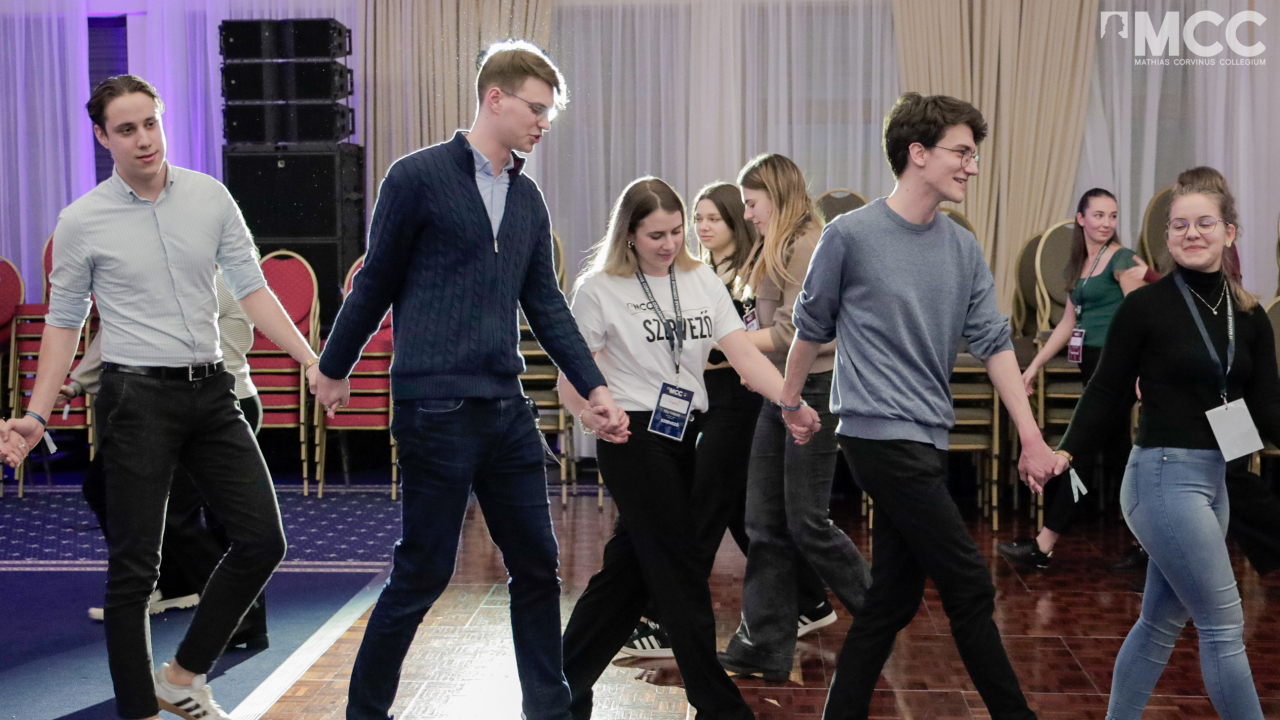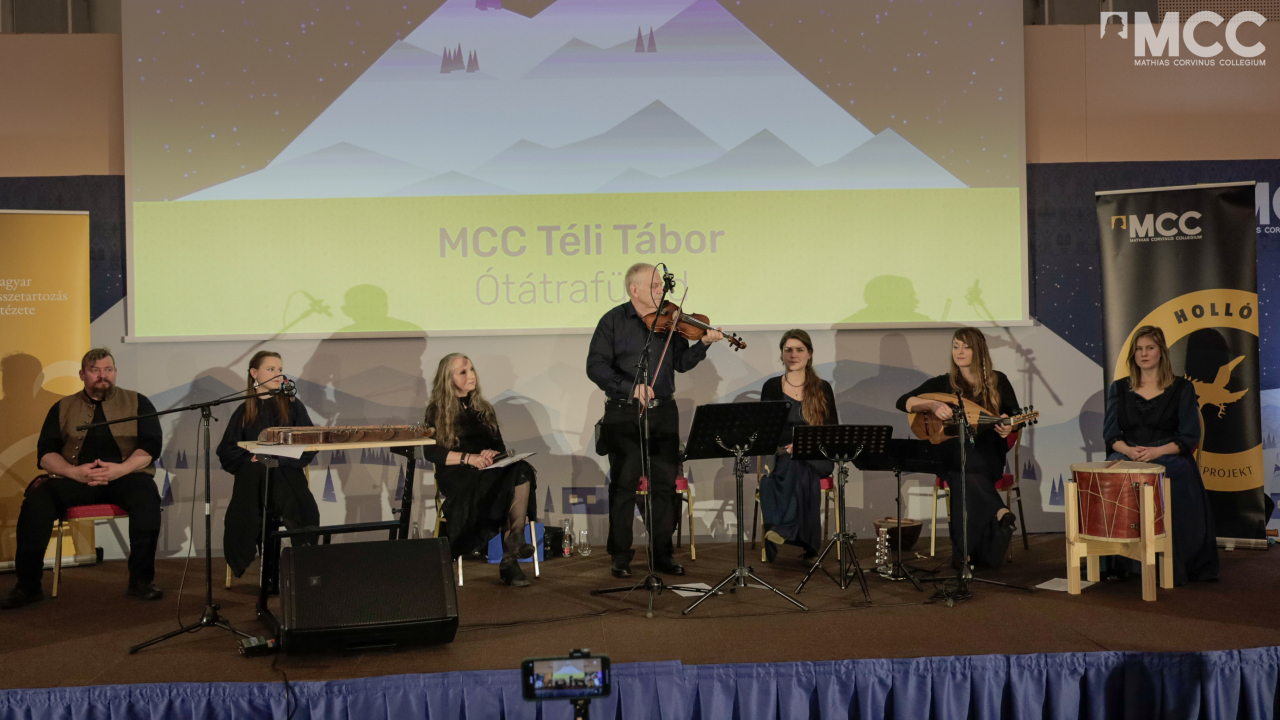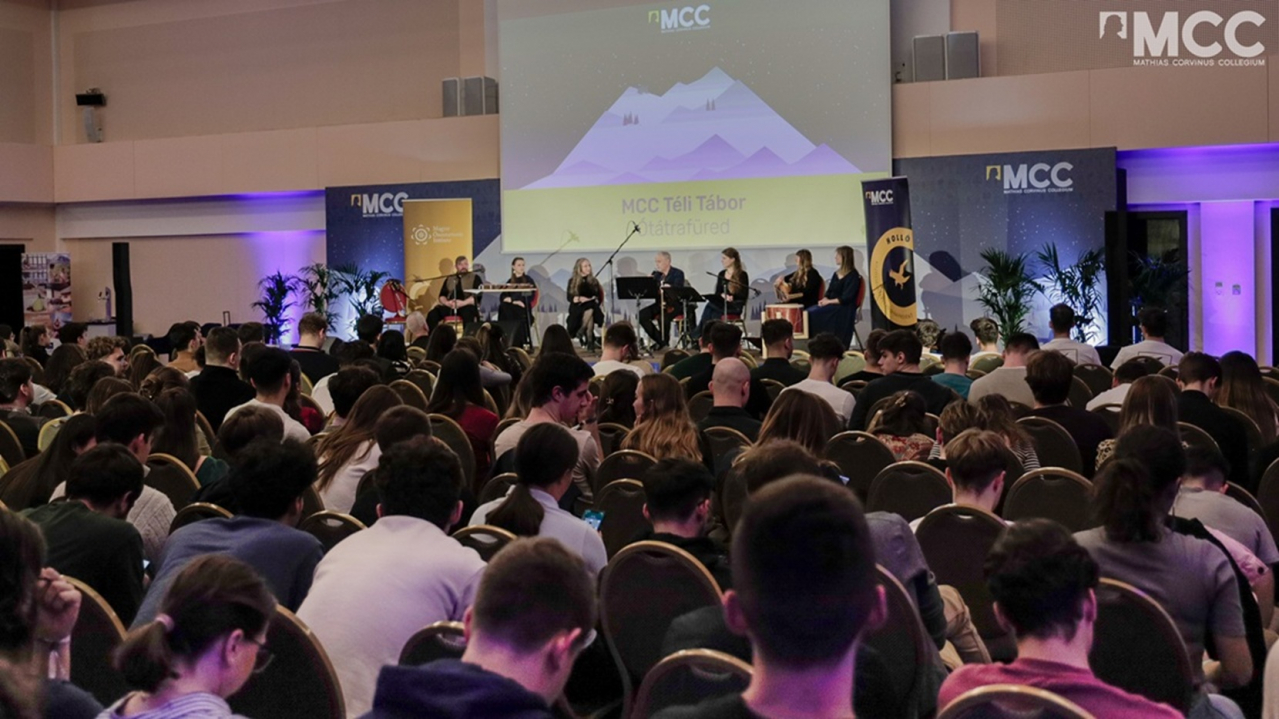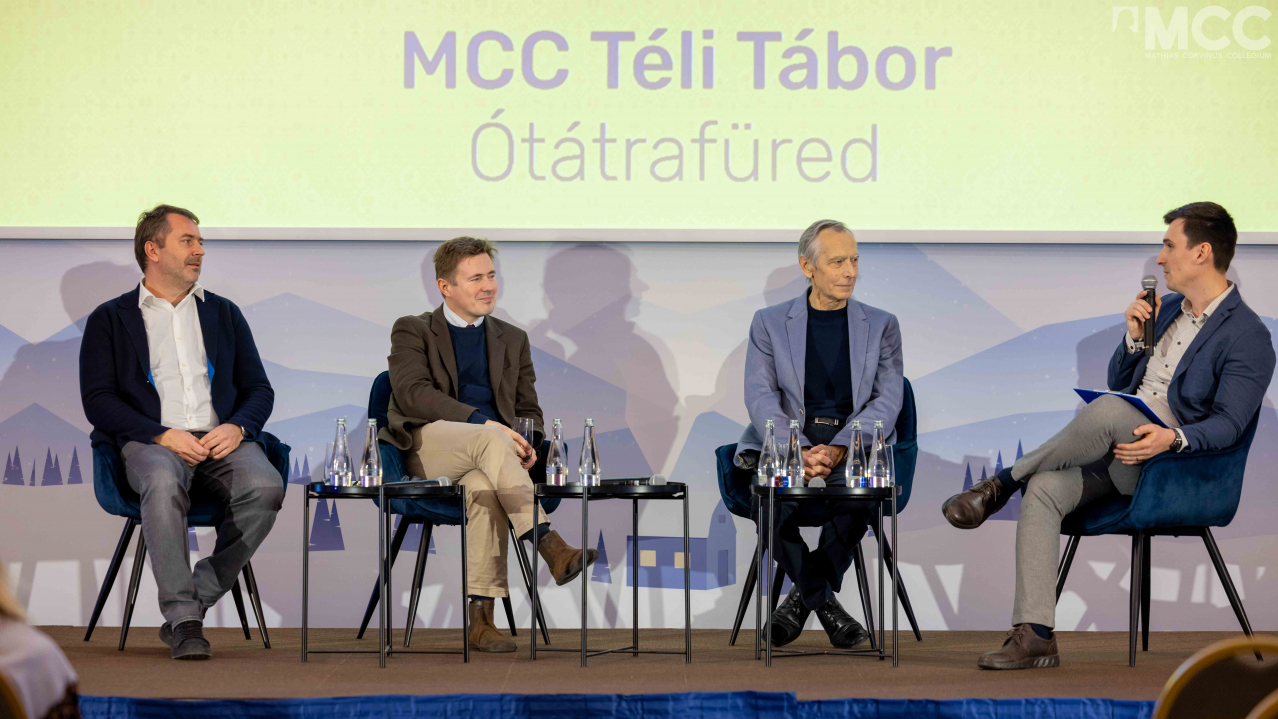Reading time: 3 minutes
On January 29, MCC's winter event, the Winter Camp, began, bringing a true intellectual and cultural buzz! Students from our centers in both the motherland and beyond the borders gathered in the picturesque High Tatras to participate in an exciting three-day professional retreat and community-building programs.
The camp was officially opened by Zoltán Szalai, Director General of MCC, and Péter Lánczi, Deputy Director General. Zoltán Szalai welcomed the students gathered at the Carpathian Basin Winter Camp for the fourth time. He spoke about MCC’s future plans, stating that the coming period will see even more intensive professional research across various scientific fields. He also emphasized the crucial importance of teacher training: “Our collaboration with numerous schools is strong, and we aim to expand and further develop it.”
Szalai highlighted the significance of MCC’s national and international recognition, as well as its increasingly prominent presence in the media and public discourse. He pointed out that while professional specialization is a common trend worldwide, MCC offers an alternative approach, stressing the need to develop general knowledge and view global events in a unified and structured manner. He emphasized that the greatest global achievements are born from multidisciplinarity.
Regarding geopolitical developments, he noted that the world is once again shifting its perspective toward nations and localization. “A new world is emerging, bringing enormous changes. We can see this in the USA, the EU, and even China. This is something we must keep in mind every day.”
Péter Lánczi, MCC’s Deputy Director General, added that this is precisely why the numerous international scholarship programs offered by MCC are such valuable opportunities for its students. These programs allow them to deepen their knowledge at the world’s top universities in an international environment and bring this expertise back home to Hungary.
Following the opening speeches, an engaging panel discussion took place on the state of Hungarian-Slovak relations both 20 years ago and today, as well as on the prospects for a shared future across borders. Ján Figeľ, former EU Commissioner and a board member of the European Institute of Innovation and Technology, emphasized that the foundation of good neighborly relations is communication and shared culture. He quoted an old saying: “A good neighbor is better than a brother,” underscoring the idea that deep-rooted connections become timeless over the years.
Jaroslav Daniška, editor-in-chief of Štandard, Slovakia’s most widely read conservative newspaper, pointed to EU membership and global technological progress as the primary drivers of change. He noted that the internet and social media have provided new opportunities for younger generations to become more open and confident in their identities. Meanwhile, Juraj Šúst, President of the Ladislav Hanus Fellowship, spoke about the differences in mentality between Hungary and Slovakia, shaped by historical experiences and relationships with neighboring nations.
The panelists unanimously agreed that while times change, cultural and human connections remain timeless—and that, together, we can shape a stronger future.
The first day of the Winter Camp concluded with a dance house event organized by the Institute of Hungarian Unity.
















































